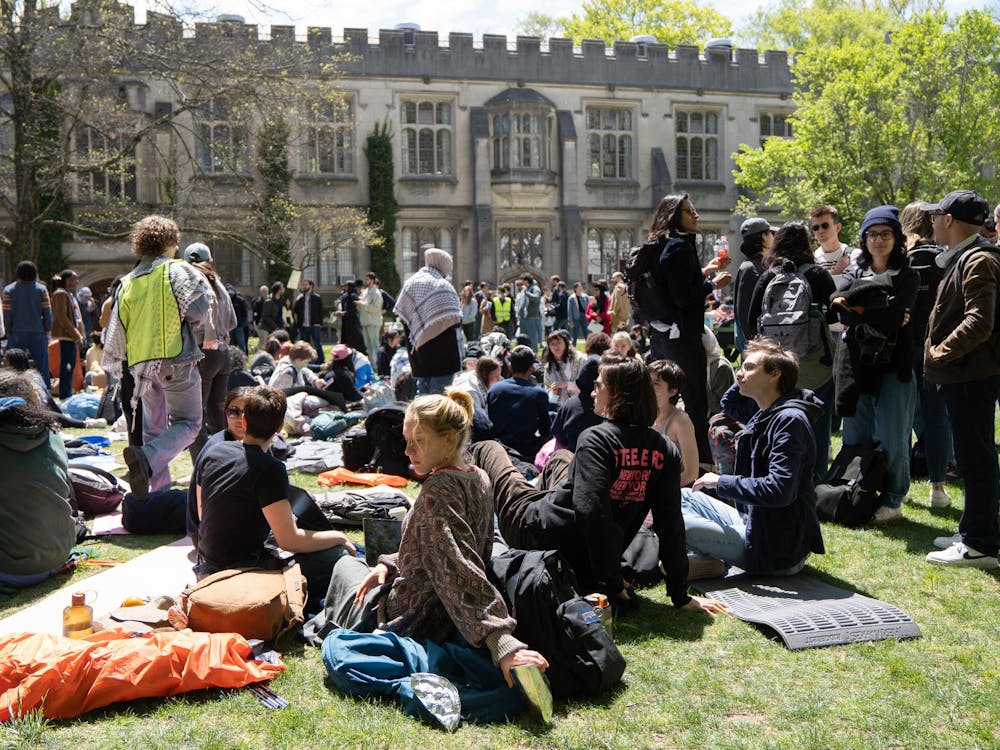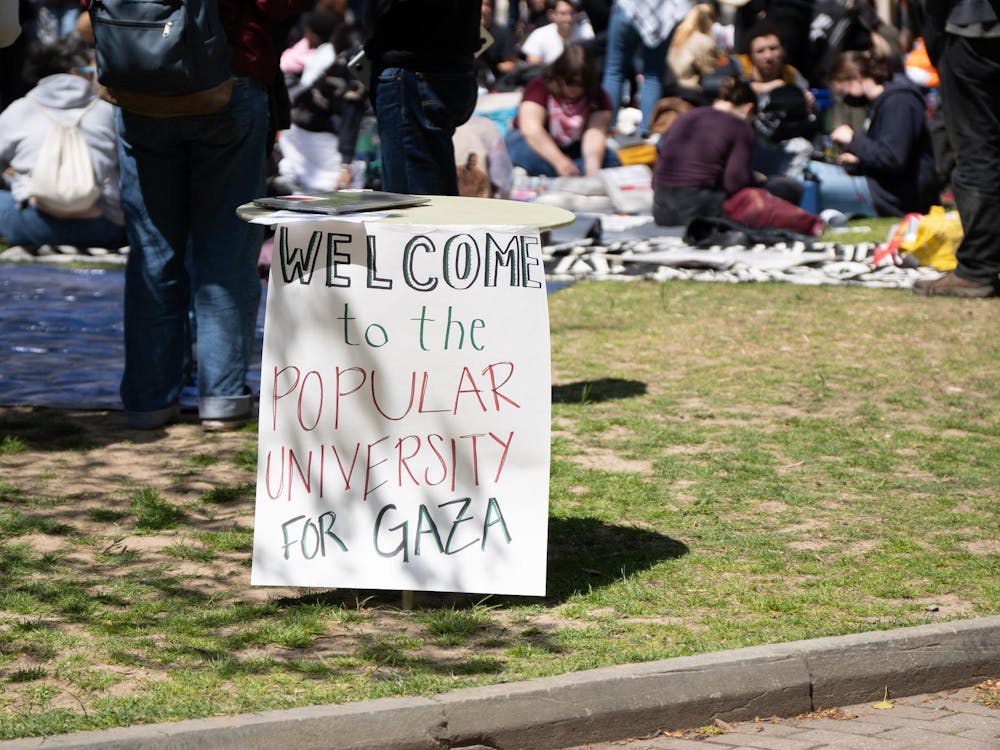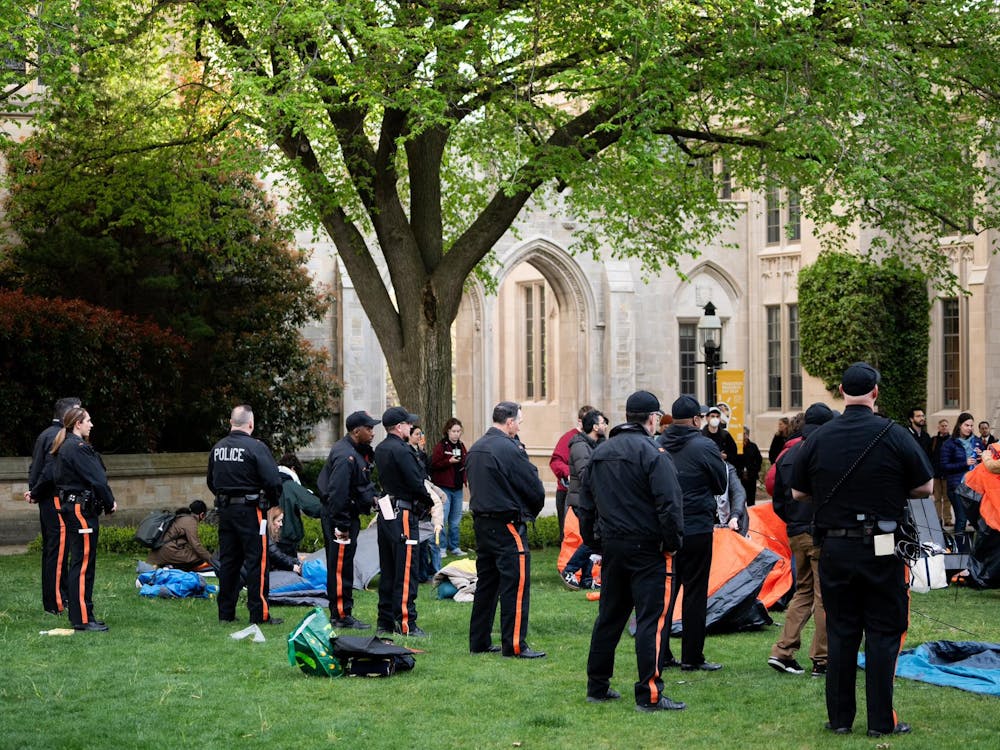The Editorial Board “reaffirmed” its support for nearly unlimited freedom of expression last week following the appearance of anti-Semitic flyers streaming from printers across campus, the contents of which the Board unequivocally denounced. They justified this position by highlighting that the purpose of a college is to be a “place for open discussion of arguments and ideas.”
The reality is that hateful free speech can silence people in targeted groups. If “free speech” is used to oppress or silence some students because of some aspect of their identity, be it religion, race, sexuality, etc., Princeton cannot and will not truly be a “place for open discussion of arguments and ideas.” Therefore, it is crucial that the University work towards ensuring that our campus is a safe space for all to participate equally, even if it means doing what it can to prevent these anonymous printer attacks and other forms of hate speech.
The Board is correct in its argument about the purpose of a University, but in forming this argument, it ignores the fact that some speech actually is antithetical to the free exchange of ideas. These anti-Semitic attacks might alienate Jewish students (and in turn, encourage them to withhold their voices), just as racist commentary can silence students of color. It is easy to say that, in theory, such speech shouldn’t silence their targets, and hate speech might not have such a strong impact on all those who identify with a certain group. However, that does not mean that these group epithets don’t have a chilling impact on some individuals' willingness to share their own ideas and their willingness to participate in campus conversations. Our words have effects, and it’s naive to suggest otherwise.
Considering these competing values in terms of our Constitution can be illuminating. On the one hand, the First Amendment upholds the notion of free speech and expression. On the other hand, the Fourteenth Amendment argues for equal protection under state and federal laws. If in practice one person’s freedom of expression blocks that of someone else, then that is problematic under the Fourteenth Amendment. Having all of these freedoms is only beneficial if everyone can enjoy them equally. If it is largely white, cisgender, straight, Christian men who feel as though they have this full freedom of speech, while others, regardless of the official rules, are quieted in practice because they are targets of hate speech, then the freedom of expression loses much of its value.
Moreover, a campus environment is not just a center of learning. It is also our home for four years, as Princeton likes to self-advertise. And in the case of Princeton, it’s our private home and not a fully public space. I will admit that I’m a lot more sympathetic to the issue of hate speech as free speech on the national level. I believe that the consequence of limiting speech is more dangerous on that scale, especially because lines can admittedly be difficult to draw at times. But I do think that the University has a clear commitment to providing an environment where all students equally feel as though they can safely learn and live. While “engaging with controversial ideas” is great, it is only so if everyone feels safe to do so.
Some argue that we are too sheltered in the Orange Bubble from the challenges of the real world. They reason that by providing a buffer from the hatred that exists in the real world, the University does us no favor. But this is also University students’ home. Surely, we are allowed to feel safe in our own home.
Editorial Board Chair Cydney Kim '17 highlighted this core issue in her editorial dissent. As she explains “even if these posters are allowed in society at large, the University should uphold a higher standard of acceptable speech since it has a unique mandate to provide ‘an educational, working, and living environment free from discrimination and harassment based on a protected characteristic’... due to this commitment to providing an environment free from harassment, the University should ensure that academic discussion and debate remains respectful.”
That the University is concerned about respect for others is a boon, not a detriment. If concerns like this are why the University is getting “a red light rating” from the Foundation for Individual Rights in Education, I applaud the University for that. I for one have no problem that University policy means “students must refrain from ‘transmitting to others in any location inappropriate images, sounds or messages that are clearly threatening, hostile, or harassing.’” In fact, when you consider that about half the schools failed the FIRE rating, it might be time to recalibrate that standard. I for one would much rather see the university striving to create an environment where everyone has an equal opportunity to safely learn and challenge themselves and others rather than just providing that space to a few.
Marni Morse is a politics major from Washington, DC. She can be reached at mlmorse@princeton.edu.









